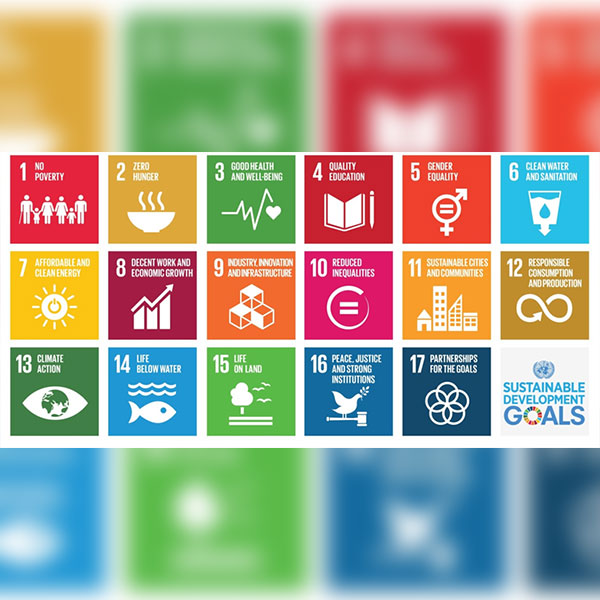Back to “Think Globally, Act Locally"

Professor Philip Dearden, Head of the Centre for International Development and Training, reflects on why the Sustainable Development Goals involve us all working “glocally”.
When I was an undergraduate environmental science student I was very much exposed to the thinking of Rene Dubos who is often attributed as being the originator of the slogan “Think Globally, Act Locally”. At the time this witty maxim spoke to many of my fellow students and encapsulated what many of us wanted to do.
However for most of my career I have been involved in international development work through the University of Wolverhampton’s Centre for International Development and Training (CIDT) and for me it’s very much been “ignore local but think and work globally”.
Recently taking on a new additional role of research coordinator within the Faculty of Social Sciences in the University has given me an opportunity to reflect on global issues and start to “think globally but try and act locally”.
The Sustainable Development Goals (SDGs) address the world’s most challenging issues. They have been accepted and welcomed globally. Indicators are being finalised and progress with the SDGs is now being reported on by a number of agencies.
Importantly the SDGs are universal. They are goals for all countries, not just those with the greatest poverty. Within the UK it remains unclear who is responsible for delivering and reporting on progress towards meeting the SDG goals and targets.
The blurred lines of responsibility and accountability for the SDGs in the UK are spawning some interesting approaches, such as the innovative UK Stakeholders for Sustainable Development (UKSSD), a cross-sector network of stakeholders working towards the SDGs in the UK.
More locally still, the SDGs are critically important to us as a university. The immediate challenge for us is to get fully involved with the SDGs be it locally, regionally, nationally and/or internationally. We need to really embrace the SDGs both locally and globally i.e. “Glocally”.
A simple SDG Mapping Exercise as to how we at the University of Wolverhampton are working “Glocally” has already been undertaken. Many people who have looked at this have been amazed at what we are doing against each of the 17 SDGs.
Looking ahead we need to carefully note that the Times Higher Education (THE) are about to publish an innovative SDG University league table. In the first year the table will be based on 11 chosen SDGs. In future years it will include all 17 Goals. The THE believe there are three ways universities contribute to society:
- Research - Creating knowledge to address the world’s problems.
- Stewardship - Managing resources, teaching well, the “good” university.
- Outreach - directly acting in society.
With metrics built around this theory it will be interesting to see which universities across the globe are contributing most to the SDGs.
- Professor Philip Dearden is Head of the Centre for International Development and Training at the University of Wolverhampton.
For more information please contact the Corporate Communications Team.


/prod01/wlvacuk/media/departments/digital-content-and-communications/images-2024/Diane-Spencer-(Teaser-image).jpg)
/prod01/wlvacuk/media/departments/digital-content-and-communications/images-18-19/220325-Engineers_teach_thumbail.jpg)
/prod01/wlvacuk/media/departments/digital-content-and-communications/images-2024/240509-Menopause-Research-Resized.jpg)
/prod01/wlvacuk/media/departments/digital-content-and-communications/images/Maria-Serria-(teaser-image).jpg)
/prod01/wlvacuk/media/departments/digital-content-and-communications/images-2024/241014-Cyber4ME-Project-Resized.jpg)
/prod01/wlvacuk/media/departments/digital-content-and-communications/images-2024/240315-Research-Resized.jpg)
/prod01/wlvacuk/media/departments/digital-content-and-communications/images-2024/BDA-group-photo.jpg)